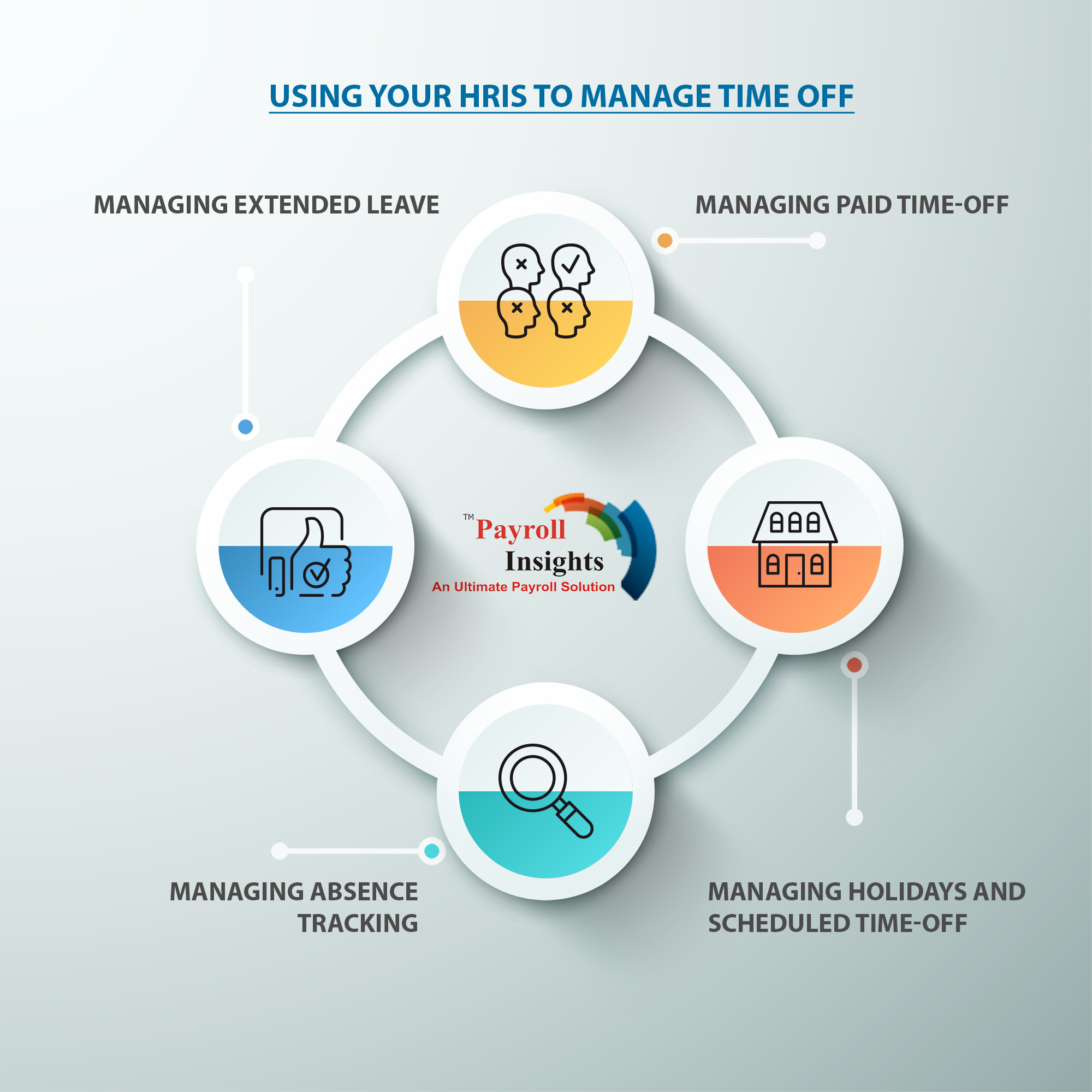Managing Time-off effectively can help save you lots of business hours. It can be done either manually or you can always use an HRIS or Human Resource Information System.
Managing Time-Off can actually be knotty and even time-consuming at times. The HR department has to handle time-off requests, pay the employees based on the company’s HR policies, hold employees liable for their absence in a consistent manner, and finally adhere to the company’s HR policies and laws.
Your HRIS system would be a better option in handling all these complicated processes in a better way.
How does HRIS deal with Time-off?
Apart from time & attendance, payroll processing, and human resource functions, your HRIS system can also help you manage your company’s time-off needs. Some of them are highlighted below:
Managing Paid Time-Off
Paid Time-off (PTO) has different components, i.e., your employee is entitled to a paid time-off from many sources. In some cases, your employees can accumulate them on a weekly basis or they might be entitled to an assured number of PTOs at the beginning of the year. In other cases, they can get them from accumulated sick days or vacation days, etc.
Your HR department might find handling the PTO balances of your employees, debiting or crediting them, a little messy especially if the process id manual or handled in a disorganized manner. Your employees can actually lose confidence in your company if their PTOs are not calculated properly.
This is where your HRIS system can make it easier for your HR department to keep track of the PTOs correctly and keep your employees’ mind at ease when it comes to their paid leave. Your HRIS can automate the management of the paid leaves by,
- Automatically adding time to the PTO balance.
- Sending notification alerts to management when an employee requests for a PTO.
- Alerting the management with a question on the PTO that is being used.
- Set reminders for time-off requests in the scheduling modules. This helps minimize the potential for error especially when the HR forget time-off requests put by the employees.
Managing Holidays and Scheduled Time-Off
Your HRIS system can take into consideration all the paid holidays and other scheduled time-offs, which usually is a challenging task to maintain. HRIS can even be designed to pay your employees for the scheduled days off automatically while keeping track of the paid time-off days.
Managing Absence Tracking
Your employee might be absent from work due to many reasons; it could be a medical emergency or other personal issues. Your company will face a dilemma in most cases where you need to show compassion to the employees for taking leave. But you also have to follow the company policies too. Above all, you need to follow consistent procedures and hold each and every employee to the same accountability measures.
Your HRIS would come with a library of policies and procedures that can be accessed by both your employees and managers. This can help keep track of the existing guidelines. In cases where your employee’s absence does not meet the standards of an excused leave, your HRIS can apply a disciplinary action, like docking the employee’s pay. The HRIS can also track employees taking unexcused leaves of absence on a regular basis.
Managing Extended Leave
Your employee might take leave for an extended period due to a serious illness or other reasons. You can use your HRIS to track the leave in compliance with the HR policies of your company by opting to record the time differently when compared to the time worked in the case of a paid leave. You can also send alerts when the employee exceeds the leave allotted.

